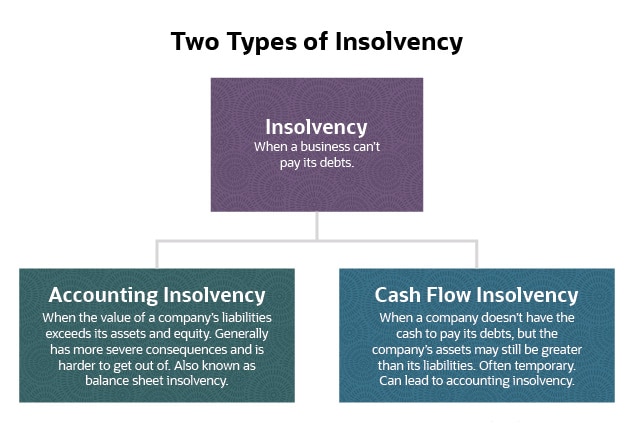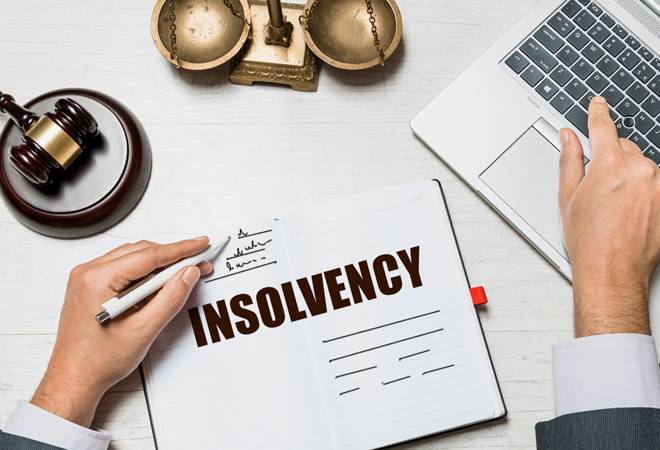Insolvency Practitioner Fundamentals Explained
Insolvency Practitioner Fundamentals Explained
Blog Article
The Only Guide to Insolvency Practitioner
Table of ContentsThe Of Insolvency PractitionerExamine This Report on Insolvency PractitionerInsolvency Practitioner Can Be Fun For EveryoneThe Facts About Insolvency Practitioner RevealedRumored Buzz on Insolvency PractitionerThe 8-Minute Rule for Insolvency PractitionerThe Basic Principles Of Insolvency Practitioner
Bankruptcy is when liabilities are higher than the value of the company, or when a borrower can not pay the financial debts they owe. A company can become bankrupt because of a variety of circumstances that result in poor capital. When confronted with bankruptcy, a company or individual can speak to lenders straight and restructure debts to pay them off.
Organization proprietors may call lenders directly and restructure debts right into more manageable installments. Creditors are typically open to this method because they desire to be settled and stay clear of losses, even if the settlement is on a postponed routine.
The proprietor produces a proposition outlining how the debt might be restructured using expense reductions or various other plans for assistance. The proposal shows financial institutions how business may produce adequate capital for profitable operations while paying its debts. Usually, a forgiven debt may be thought about earnings by the Internal Income Solution (IRS).
Some Known Details About Insolvency Practitioner
When a business has actually to pay increased prices for items and services, the company passes along the cost to the customer. Instead than pay the increased cost, several customers take their business elsewhere so they can pay much less for a product and services. Shedding customers results in losing revenue for paying the business's financial institutions.
Business might finish up paying big quantities of cash in damages and be incapable to proceed procedures. When operations stop, so does the company's revenue. Absence of revenue results in overdue costs and creditors asking for cash owed to them. Some firms become bankrupt because their goods or solutions do not advance to fit customers' transforming requirements.
The Definitive Guide to Insolvency Practitioner
Costs go beyond profits and bills stay unsettled. Cash-flow insolvency occurs when a firm has the assets to cover their financial obligations but they are in the wrong type, such as genuine estate instead of liquid funds. Balance-sheet bankruptcy, on the various other hand, indicates a lack of possessions in any kind of form to cover financial obligations.
The IRS states that a person is insolvent when the complete obligations exceed complete properties. Insolvency Practitioner. A bankruptcy, on the other hand, is a real court order that portrays just how a bankrupt individual or company will certainly settle their lenders, or exactly how they will certainly sell their assets in order to make the settlements
7 Simple Techniques For Insolvency Practitioner
If that circumstance expands longer than anticipated, it can lead to insolvency. When a business or individual is insolvent, they can not satisfy their monetary responsibilities. see page Solvency is when you have sufficient funds to cover the payments you owe. A company is considered solvent when they have much more possessions than responsibilities.
Understanding the aspects that can result in bankruptcy, such as overspending, can help you stop insolvency and its repercussions.
Getting The Insolvency Practitioner To Work
It is well known that directors and police officers of corporations (and managers of limited obligation companies) owe fiduciary tasks to their companies and their investors (or participants). These fiduciary obligations are specified by state laws and, though there are variations from state to state, they generally include an obligation of loyalty and a responsibility of care.
The moved here duty of treatment calls for supervisors and police officers to exercise diligence, to make enlightened choices, and to act in good faith to make sure that their activities remain in the most effective interest of the firm. Though beyond the extent of this conversation, some states allow these obligations to be limited either by so keeping in mind in the organizational documents or following other demands.
Excitement About Insolvency Practitioner

Take care regarding giving investors favoritism at the cost of financial institutions (e.g., accrediting and moneying a returns or a stock redemption). Beware regarding preferential therapy in between courses of shareholders. Make sensible initiatives to find out all the realities before taking a certain course of action; supervisors should genuinely think that any kind of choices made are in the very best interests this page of the company in its entirety (i.e., decisions will be assessed in knowledge taking into account the result of such activities on the corporation).
In any bankruptcy or insolvency case, settlements made to specific creditors at the expense of various other creditors can be clawed back, especially if there is some connection in between the company and the financial institution. Consider proposing at an annual investor meeting (or any various other meeting of investors) a resolution attesting that all previous business choices and actions taken by the directors and police officers of the corporation were absorbed good confidence after an exercise of practical care.
An Unbiased View of Insolvency Practitioner
Totally disclose any type of individual or service partnerships with parties on the other side of purchases involving the company to prevent the look of a problem of passion. In evaluating potential fund increasing purchases or a sale of assets of the troubled firm, realize that these deals might be inspected later taking into account any kind of succeeding development of supervisors' fiduciary duties to include creditors.
Report this page